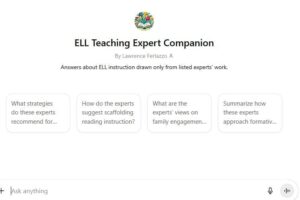
Campus Workers Hold Clues to Higher Ed’s Trust Problem
I emerged from my editor’s den in Washington, D.C., this week to speak to faculty, staff and administrators at Eastern Washington University. I don’t visit campuses enough and was charmed by the welcome carefully laid out for students: freshly cut grass, newly mulched flower beds, the uniform hue of EWU red on every banner, sign and bus stop. Even the football field is red.
Among those who delivered opening remarks at EWU’s Welcome Back Breakfast, the leader of the classified workers’ union spoke eloquently about the role custodians, groundskeepers, plumbers, heating engineers and others play at the university. He reminded everyone that their “behind the scenes” work helps keep the classrooms warm, the grass cut and the water clean and running. “Have grace and say thank you. These workers help you do your jobs,” he told his colleagues.
He also pointed out that their work is crucial to EWU’s student success. And he’s right. Studies show that interactions with staff—whether at the bookstore, in public safety or on the facilities team—influences how students feel about their learning experience. For Hispanic, Black, low-income and first-generation students in particular, connecting with staff, who are often ethnically diverse, helps build a sense of belonging. But do colleges do enough to support staff in their unofficial roles as mentors and confidants?
The Community College Research Center at Columbia University’s Teachers College recently looked at the impact of the Institute for Evidence Based Change’s Caring Campus coaching program. In a 2022 report, CCRC researchers found that the personalized coaching sessions helped staff develop their leadership skills and gave them new ways to support students. For example, the 10-foot rule—if a student is within 10 feet and seems to need assistance, offer to help with a smile and positive tone. The program also recognized workers’ roles in the institutional mission. “One of the really nice things that’s come from it is that we’ve been able to see how we can still help the students, even if we’re not in student services,” one staff member told the researchers.
The study indicated that when workers are credited for their work and given tools to help students, they feel more engaged with the campus community. That is only a good thing for colleges.
Classified staff could also help colleges understand more about the decline in public trust in higher ed. Voter demographics suggest that many of the workers on campuses across the country may have voted for Donald Trump. He won voters 45 years old and older, those who had some—or no—college experience and people with a reported income of less than $100,000. As colleges battle attacks on higher ed on multiple fronts—threats to public funding, accusations of “woke indoctrination,” denials of academic research’s validity—perhaps the first place administrators should look to understand and address this skepticism is right on their own campuses.

Source link



